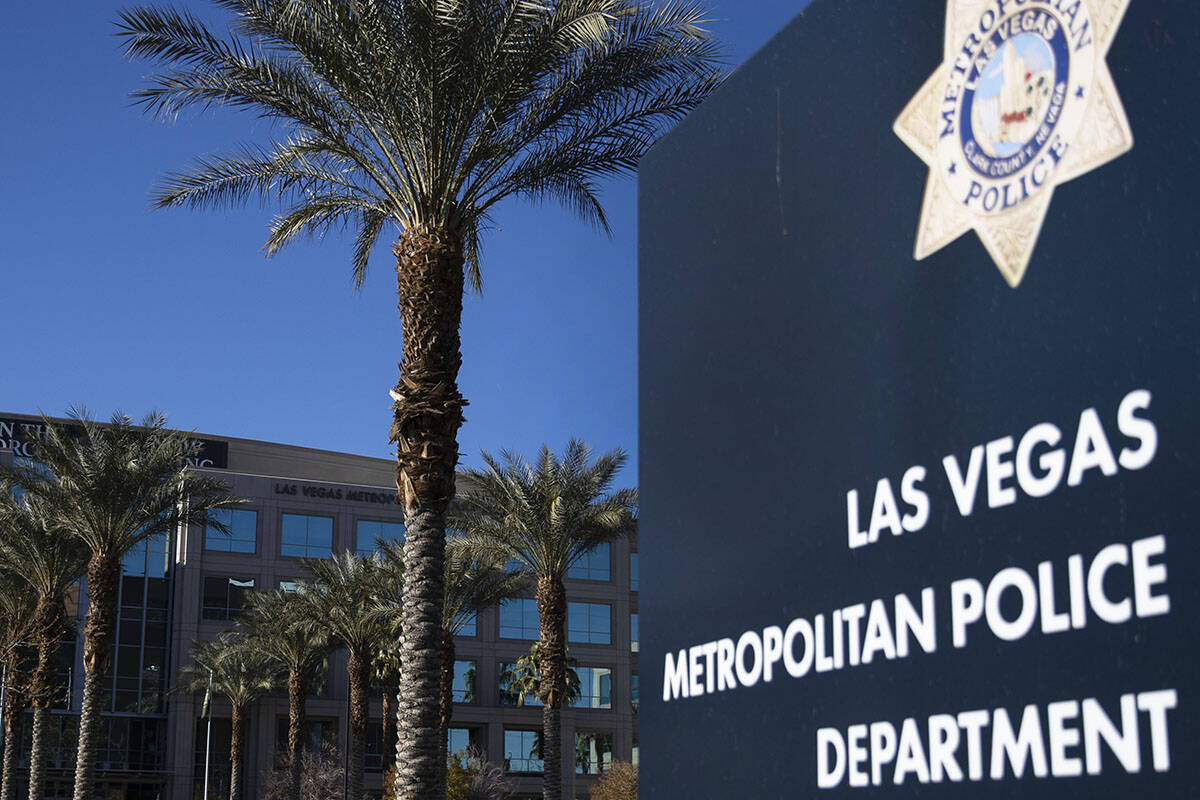‘Huge win for public’: Supreme Court finds Metro violated records law
The Nevada Supreme Court has ruled that Las Vegas police violated the Nevada Public Records Act when the department failed to provide the Las Vegas Review-Journal with information about an investigation into a law enforcement officer.
In 2019, a reporter with the news organization requested a Metropolitan Police Department case file for a criminal investigation into a Nevada Highway Patrol trooper who was alleged to have attempted to hire a confidential informant to kill or harm his wife, although charges were never filed against the trooper.
Metro first claimed that records could not be released because the investigation was ongoing, even though documents obtained by the newspaper indicated the investigation was closed.
The department then denied that records were available before releasing heavily redacted documents. The newspaper filed an appeal with the Supreme Court in 2021 after a district judge upheld Metro’s denial of the records.
In a unanimous decision on Thursday, the Supreme Court overturned the District Court order and found that the records could be released with limited redactions.
The high court’s opinion stated that governmental entities cannot refuse to disclose records to protect someone’s identity when “selective and narrow redactions of the records” would instead suffice.
“We are very pleased with the court’s decision. The court emphasized the compelling interest the public has in oversight of law enforcement and the accountability of law enforcement officers and held that access to these records is vitally important to those interests,” said Review-Journal Chief Legal Officer Benjamin Lipman.
Metro declined to comment on Friday.
The Supreme Court also found that Metro failed to prove that releasing the records would harm confidential sources, ruling that not releasing the information was a violation of the Nevada Public Records Act.
“While the NPRA nevertheless recognizes the importance of safeguarding confidential and sensitive information, it does not permit courts to accept at face value assertions that disclosure of governmental records jeopardizes the safety or eviscerates the personal privacy interests of others,” according to the opinion.
The opinion, authored by Justice Elissa Cadish, also was signed by Justices Lidia Stiglich, Kristina Pickering, Douglas Herndon and Ron Parraguirre.
Documents obtained by the Review-Journal showed that Metro officers who investigated the trooper met with representatives from the Clark County district attorney’s office, who determined that there was not enough evidence to charge the trooper with a crime. The trooper was ultimately fired, according to court filings.
Although the lower court had agreed with Metro’s argument that the documents did not concern an elected official and did not detail a crime, the Supreme Court justices found that there is still public interest in the records.
“Regarding the alleged lack of involvement of a public official, Metro remains under the supervision of an elected sheriff (who was, at the time of the request, a candidate for governor) and Metro collaborates with the District Attorney’s Office, which remains under the supervision of the elected district attorney,” the justices wrote.
Review-Journal Executive Editor Glenn Cook said he hoped the Supreme Court ruling would compel Metro to be more transparent and halt a yearslong cycle of litigation with the news organization that has cost taxpayers hundreds of thousands of dollars.
“It’s a huge win for the public. The Nevada Supreme Court has very clearly upheld the public’s right to know again and again,” Cook said. “If Metro would stop withholding public records, it would improve public trust, save taxpayer money and spare the courts a lot of wasted time and resources.”
Contact Katelyn Newberg at knewberg@reviewjournal.com or 702-383-0240. Follow @k_newberg on Twitter.























